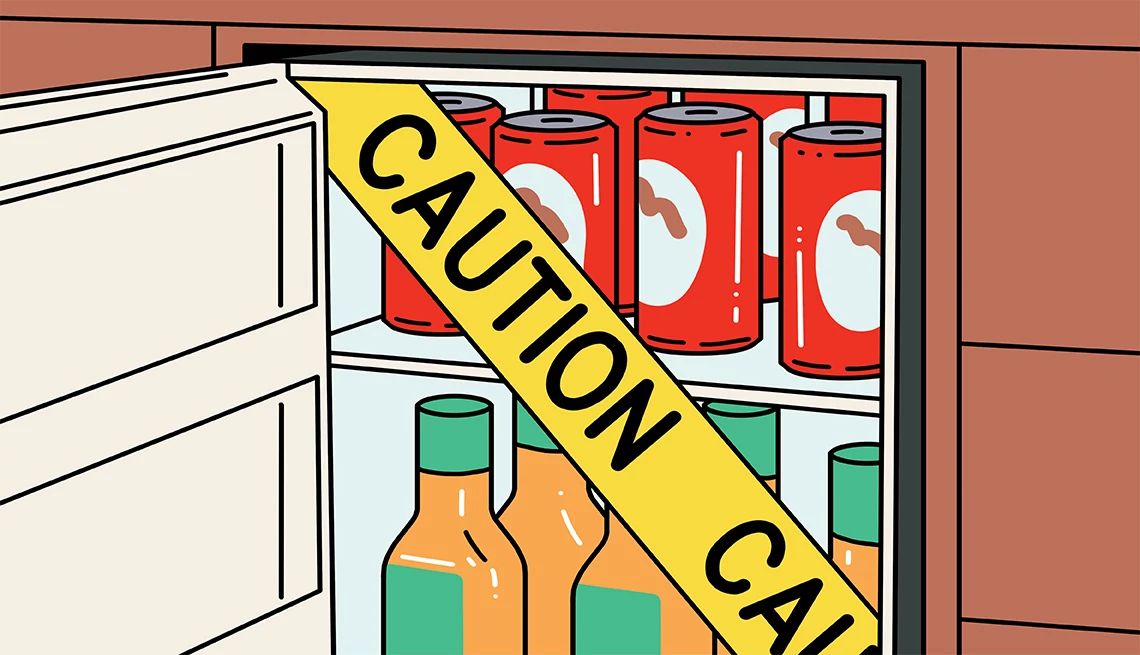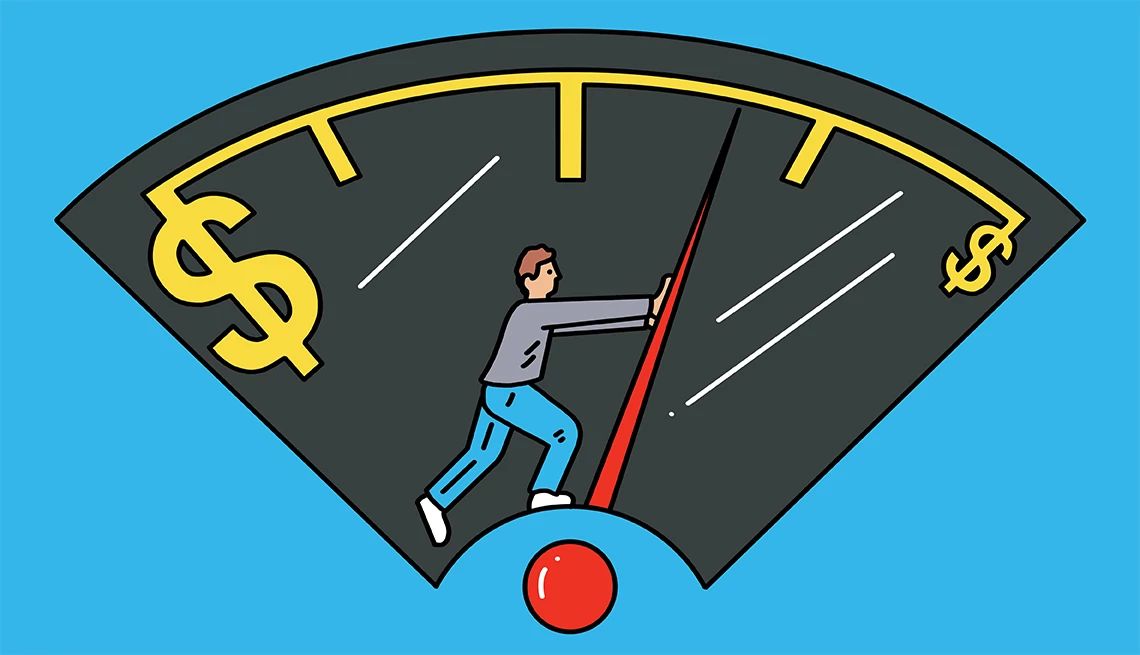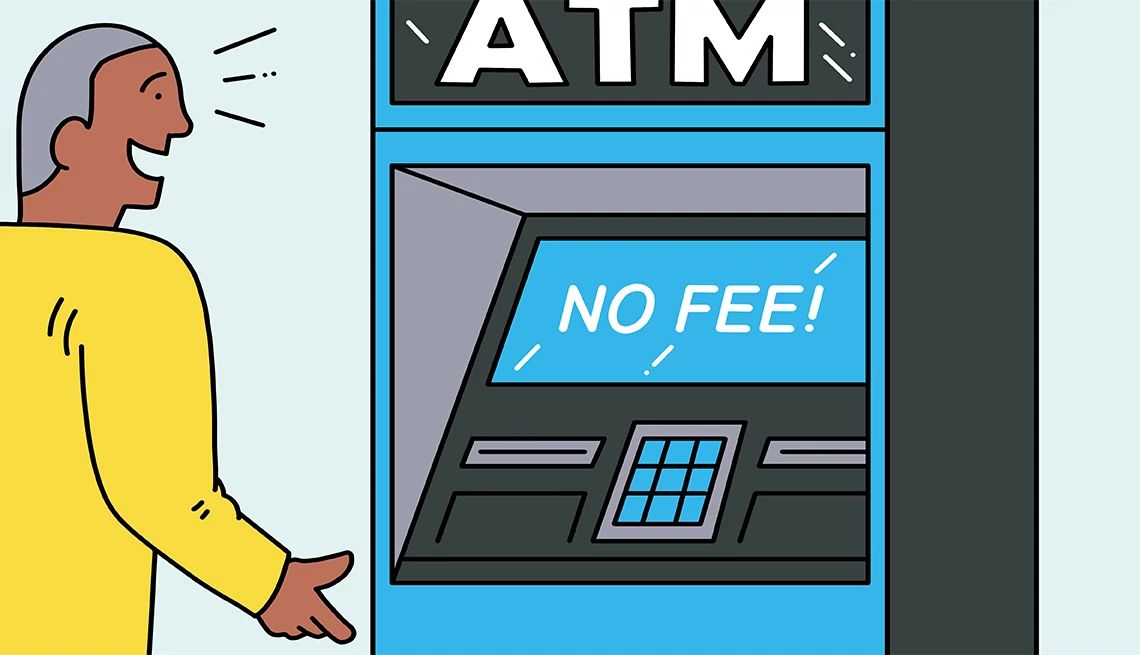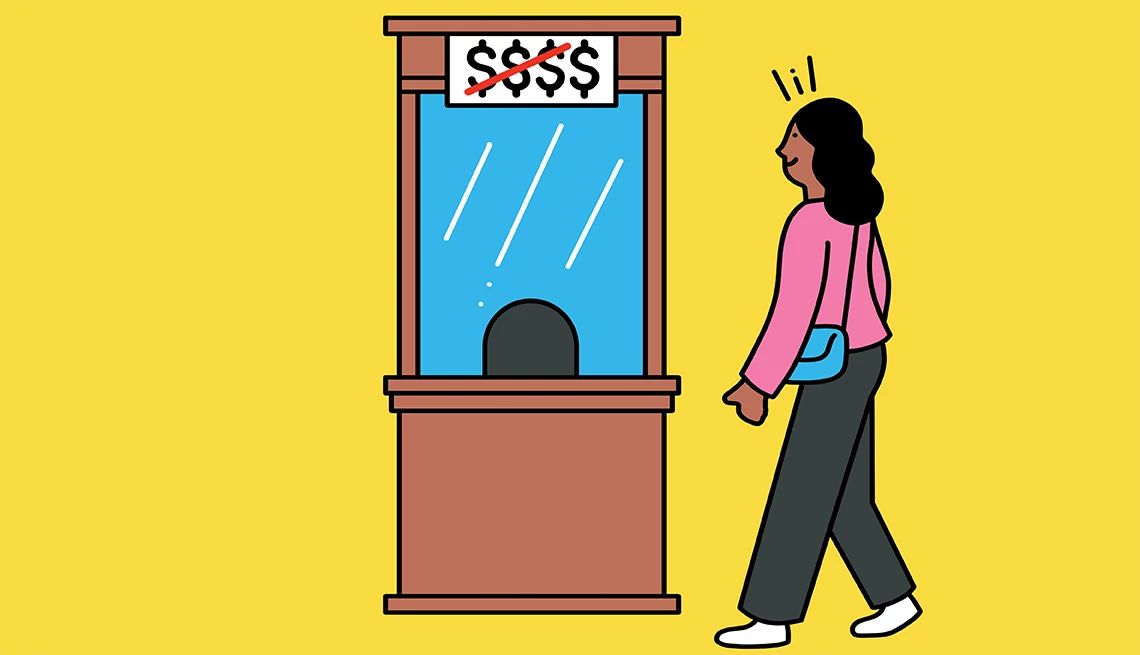AARP Hearing Center


That car rental advertised for $29 a day? Try $65, after “convenience fees,” insurance upsells and gas-topping charges. Those food prices on delivery apps? They could be nearly double the dine-in menu prices. Even your loved one’s funeral isn’t immune — extra charges can add hundreds, or thousands, to your final bill.
Welcome to the age of hidden fees, where the price you see is rarely the price you pay.
These aren’t billing mistakes or oversights. They’re calculated profit boosters, often designed to hook you with an attractive headline price, then hammer you with add-ons at checkout, when you’re less likely to walk away. The result? Americans are shelling out an estimated $90 billion in junk fees annually. That’s more than $650 per household disappearing into corporate coffers.
But here’s what the fee collectors don’t want you to know: Many of these charges are avoidable once you learn their tricks. Armed with the right strategies, you can outsmart the system and keep more of your hard-earned money where it belongs: in your pocket.
AIRFARE
1. Don’t trust that $100 cross-country ticket you spotted online
“Super-low airfares almost always come with a catch, so price the whole trip first,” says William J. McGee, a former Consumer Reports aviation adviser who has spent decades fighting junk fees.
Click past that come-hither teaser “base fare” and you’ll likely discover a growing menu of extras, such as fees for early boarding ($4 to $50), blankets ($10), snacks ($5 to $15), Wi-Fi ($6 to $35), even the privilege of printing a boarding pass at the airport ($5 to $25). JetBlue, United and Frontier now charge $25 to $35 to book with a live customer service agent. Bring a carry-on bag on a discount carrier and your $60 ticket can balloon to triple digits.
The good news: New Department of Transportation rules require airlines to disclose all mandatory fees up front and automatically refund customers for undelivered services. The trade-off: “Expect to spend more time reading fine print and asking yourself tough questions like, ‘Do I really need lunch or to sit next to my partner?’” McGee says.
2. Beat the baggage racket
U.S. airlines raked in a record $7.27 billion in baggage fees alone in 2024, but savvy fliers can sidestep them by traveling light. “Stick to a carry-on, and wear bulky items like boots and coats onboard,” says Sally French, cohost of the Smart Travel podcast and a writer on NerdWallet’s travel team. When traveling, French follows her own “10 $10 rule,” leaving behind any nonessential items that she could buy at her destination in 10 minutes for under $10, like a cheap umbrella or poncho, a small bottle of sunscreen or Band-Aids for blisters she may never get.
If you’re willing to lug a heavy carry-on through security, there’s a good chance you can check it at the gate for free if the airline runs out of overhead space, a common occurrence on full flights. “They’re almost always happy to tag it last-minute,” French says. For unavoidable checked luggage, many airline credit cards or loyalty programs offer one free checked bag, and certain medical devices, like continuous positive airway pressure (CPAP) machines for sleep apnea, fly free under federal law.
3. Flying with grandkids? Don’t pay extra for assigned seats
Check the U.S. Department of Transportation’s Airline Family Seating Dashboard to see which carriers guarantee children 13 or under sit next to adults for free. “Many airlines promise a child will be seated with the adult they’re booked with, even in basic economy,” says Ted Rossman, senior industry analyst at Bankrate.
4. Use a travel agent to access cheaper flights and free perks
Many older fliers still prefer turning to a trusted human over a search engine. “I’ve been around the airline industry since 1985. I’ve covered it, written about it, advocated about it, and I still use a travel agent for complicated trips,” says McGee. Why? Because travel agents who book through professional software systems can see cheaper fares and bundled perks the average traveler may not be able to, such as tickets that include a checked bag or free seat selection. Travel agents also know how to avoid “drip pricing,” where airlines promote seemingly rock-bottom fares that balloon at checkout. And, because travel agencies often buy airfare in bulk, they can sometimes secure fee waivers, rebooking flexibility or seat upgrades that individual travelers can’t. “For multi-leg journeys, family reunions or international flights, that kind of expertise can spare you the headaches of trying to game the system alone,” McGee says.


HOTELS
5. Never touch these two things in a hotel room
“The minibar and the telephone are like ATMs that give all the cash to the hotels,” says French, adding that you don’t even need to drink that tiny whiskey bottle to get charged for it. “Many hotels now have sensors in their mini fridges that charge you simply for moving an item.” And needless to say, that package of chips or nuts you see in the room probably comes at a cost. “Even water bottles can cost you 10 bucks if you’re not careful,” French says.
Avoid the landline if the room has one — many hotels charge top dollar for phone calls, even local ones. “Use your own phone unless you’re calling the front desk,” French says.
Notorious “resort fees,” sometimes disguised as “amenity fees” or “facility fees,” can run anywhere from $20 to $100 or more a night. Hotels and resorts say these charges cover things like high-speed internet, state-of-the-art fitness center equipment, pool maintenance or a daily bottle of water, even if you never touch the stuff. Other hidden surcharges are soaring, too: “The latest annoyance is fees for early check-in or late checkout,” says French.
Resort fees are usually charged automatically when you make a reservation, but there are some clever ways you can avoid them. One strategy is to book hotel stays with loyalty points that waive resort fees. (It’s important to note that not all rewards programs offer this perk. Check the fine print to see if yours does.) If you check in late or check out early, politely ask the desk to waive the resort fee for that day. And if the pool, gym or other amenities are closed, point that out at check-in or checkout, French says — you might get the resort fee waived or discounted.







































































You Might Also Like
My Friend Insists on Paying for Dinner
How can I break the cycle and convince my friend to let me pay the bill?
My Biggest Retirement Mistake: Skipping a 401(k)
A long-term care aide had a pension from a past job and thought that was all she could get
99 Great Ways to Save 2025 Edition
Stretch your dollars — and cut costs on groceries, travel, entertainment and more